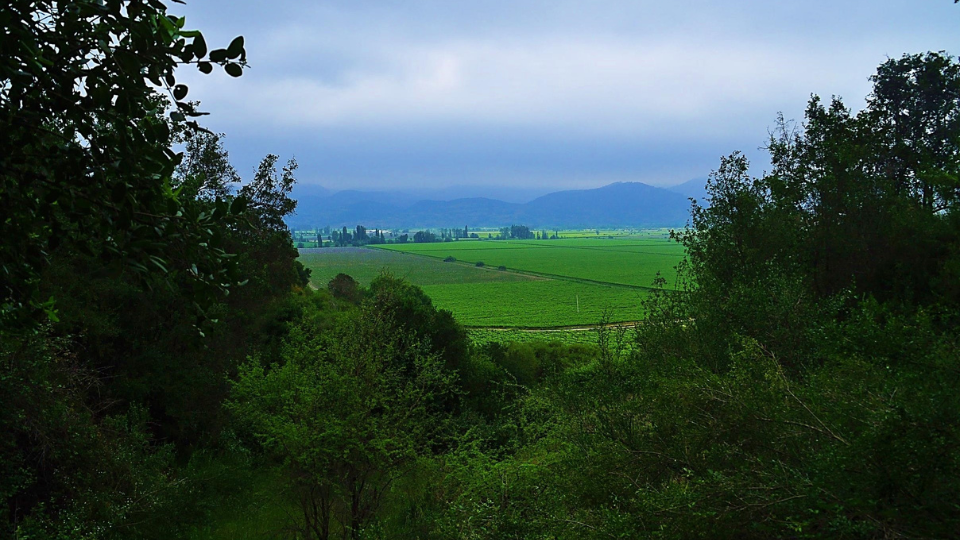- Sustainability
- January 25th, 2024
This is how Viña Concha y Toro decreases its CO2 emissions
As part of the commemoration of World CO2 Emissions Reduction Day, learn how the company has achieved these significant reductions.
This January 28 marks World CO2 Emissions Reduction Day, a key international event to encourage global decisions to promote the care of our planet and its people, mitigating the effects of climate change. At Viña Concha y Toro we understand that as leaders in wine production and a Certified B Company we have the great challenge not only to reduce our negative impacts, but also to increase our positive impacts throughout our value chain.
There are two points that have been key to achieving reductions of 35% in 5 years. The first has been the search for alternative energy sources. Therefore, from 2016 onwards the winery began an active negotiation plan with renewable energy suppliers, which allowed us to gradually begin to incorporate this type of energy as a supply for our wineries and plants in Chile. Among the renewable energy sources is a mix of solar and hydroelectric energy. Simultaneously with the energy strategy of the previous decade, progress was made in the self-supply of energy through solar plants implemented in the company’s estates in Chile. Currently, the company’s photovoltaic self-supply represents 9% of the holding’s total consumption, with 26 solar plants in Chile and two in Argentina.
Finally, part of the company’s energy requirements are covered through renewable energy certificates from the San Pedro III solar plant in Chile, which offers international renewable energy certificates (I-RECs) and is certified by the Chilean platform Renova.
In energy matters, the next stage for Viña Concha y Toro is to achieve independence from fossil fuels, which is fully aligned with the agreements recently reached at COP28, where the company was present. The company will continue to move towards the electrification of internal machinery to increase the consumption of renewable electricity, leaving behind the consumption of traditional fuels.
The second significant source of reductions for the company in the last decade is in packaging materials, which represent 30% of the company’s total emissions.
Since 2011 the company has had a Responsible Sourcing Program integrated by the main packaging suppliers, where surprising results have been seen in their commitment and in the reduction of emissions. This has been an effort that Viña Concha y Toro has made internally looking for opportunities and efficiencies in the different processes, but also working very hard to involve our suppliers to reduce emissions. More than 50% of key suppliers have already committed to the Science Based Targets Initiative, a methodology that the company also uses to guide its reduction pathway, in which it has also sought to incorporate its suppliers.
Valentina Lira, Sustainability Director, commented: “Our efforts to reduce emissions began several years ago with a focus on our direct emissions, but also highlighting the importance of the indirect emissions of our operations. On this path, the transformation of our energy matrix has been fundamental, which today for the holding company is 100% renewable electricity. This is key because today 58% of our consumption is electric and five years ago it was 50%, demonstrating how the winery has been generating this transition. It has also been important to work with our main suppliers and reduce our emissions related to packaging, mainly the weight of the bottle. In this sense, the role of our Marketing areas has been fundamental to understand the value of the preferences of our customers and consumers”.
A fundamental aspect in all this progress is the contribution of all areas of the company. Andrés Cannizzo, Viña Concha y Toro’s Purchasing Director, said: “We are constantly reducing the weight of our bottles to ensure the reduction of CO2 during the process from production to the customer. This is achieved with a lot of integrated work, in weight reduction initiatives, improvements in more sustainable materials or changes in their formulas and looking for suppliers to become certified in CO2 reduction,” he added.
“In the same way, we encourage to improve and reduce maritime transport routes so that they have less impact on fuel consumption and CO2 emissions, also aiming to generate less fossil energy consumption at that stage of the process”, concludes Cannizzo.
The subsidiaries Cono Sur, Trivento and Bonterra Organic Estates are also advancing along the line of decarbonization through the energy component, incorporating purchases of electricity from renewable generators and implementing photovoltaic plants for self-supply. The year 2022 was the beginning of the Zero Emissions Electric Energy route, a route that will remain in force in the path towards Net Zero 2040 of Viña Concha y Toro holding.



